
Find Help
More Items From Ergsy search
-

What is the prognosis for someone with heart failure?
Relevance: 100%
-
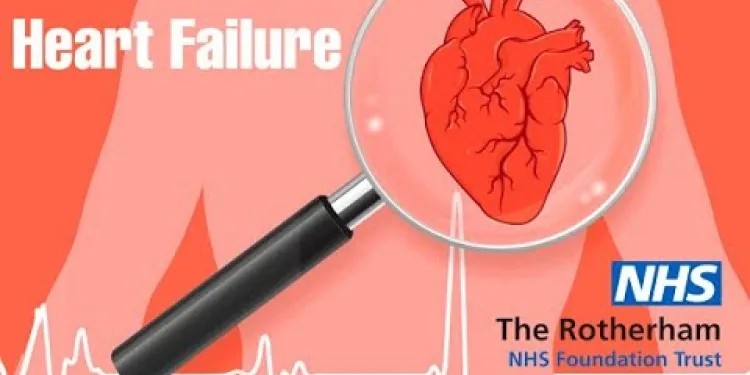
Heart Failure : Symptoms of heart failure
Relevance: 75%
-

Heart failure introduction
Relevance: 70%
-
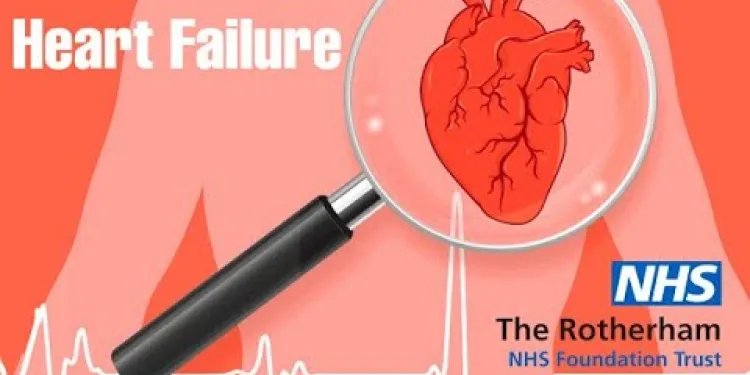
Heart Failure : What is heart failure?
Relevance: 70%
-
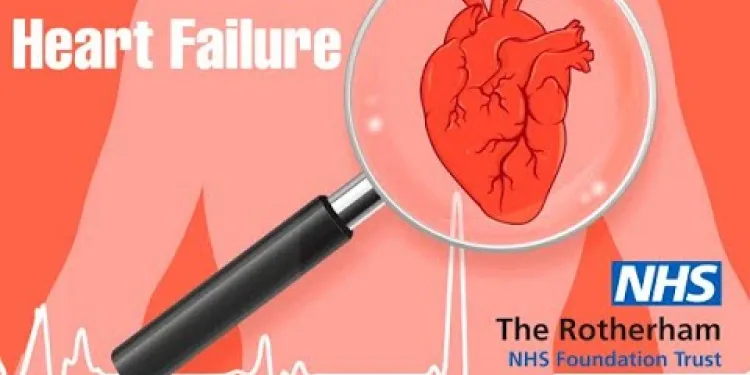
Heart Failure : Heart failure that cannot pump
Relevance: 68%
-

Are there different types of heart failure?
Relevance: 67%
-

Heart Failure : The normal heart
Relevance: 66%
-
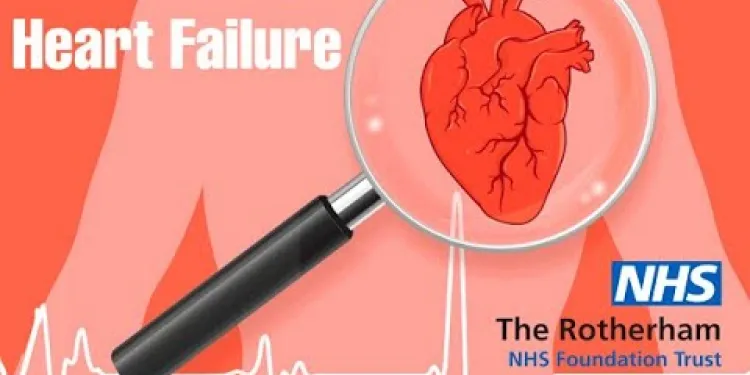
Heart Failure : When the heart becomes stiff?
Relevance: 64%
-

What causes heart failure?
Relevance: 62%
-

How is heart failure diagnosed?
Relevance: 62%
-
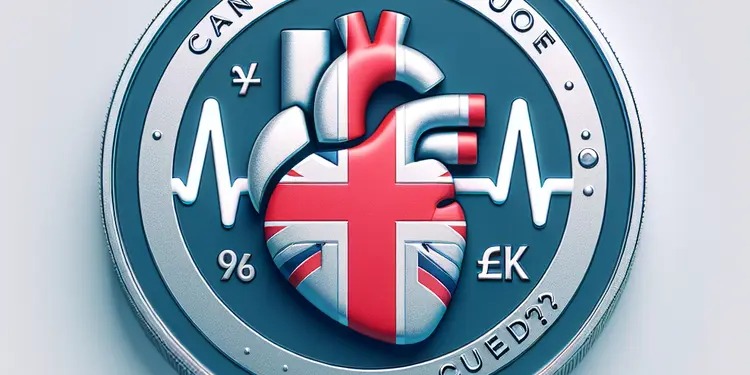
Can heart failure be cured?
Relevance: 62%
-

Can heart failure be prevented?
Relevance: 62%
-

Is Baxdrostat used in treating heart failure?
Relevance: 59%
-
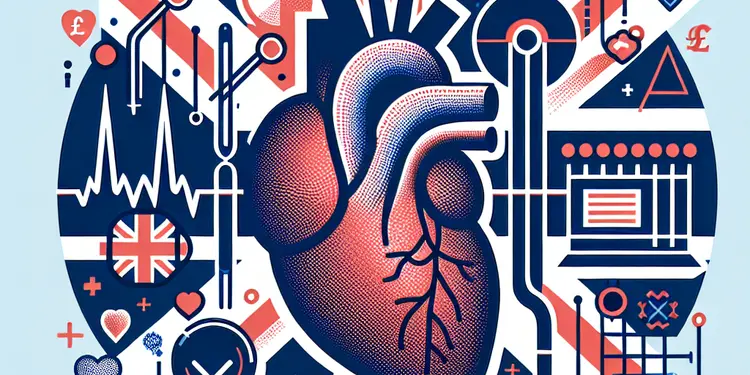
Can heart failure affect other organs?
Relevance: 57%
-

What is the role of diet in managing heart failure?
Relevance: 57%
-
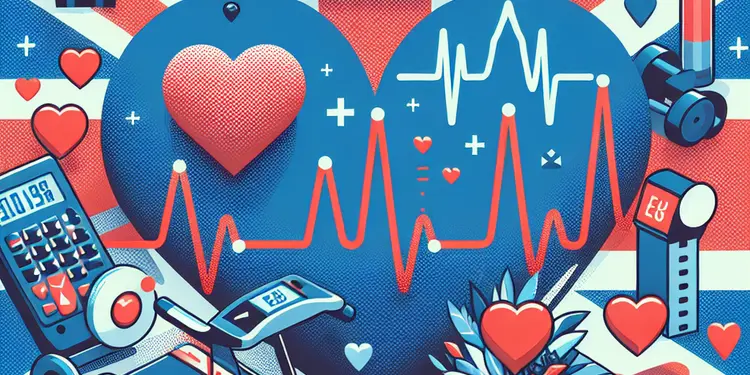
How does exercise impact heart failure?
Relevance: 57%
-
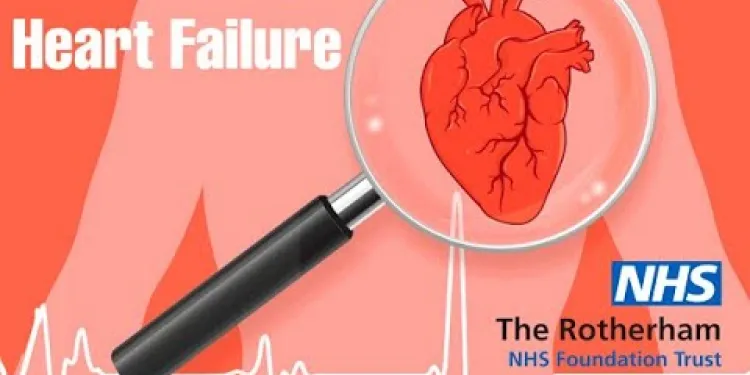
Heart Failure : Treatment and monitoring of fluid retention
Relevance: 56%
-
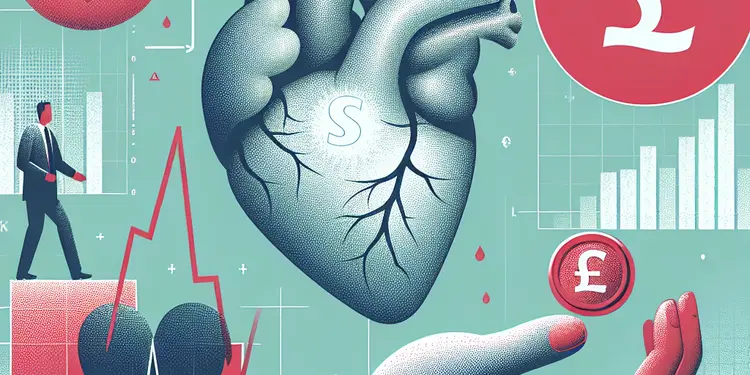
What should I do if I experience symptoms of heart failure?
Relevance: 56%
-

What medications are commonly prescribed for heart failure?
Relevance: 56%
-
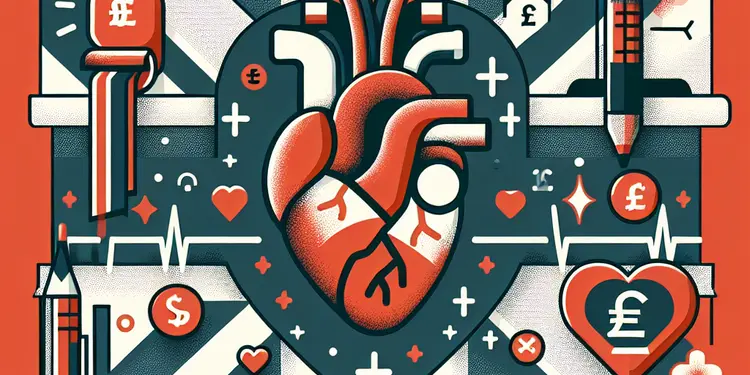
What is heart failure?
Relevance: 49%
-

What are the common symptoms of heart failure?
Relevance: 43%
-

What is the prognosis for someone with CFS?
Relevance: 43%
-

What is the prognosis for viral meningitis?
Relevance: 38%
-

What lifestyle changes can help manage heart failure?
Relevance: 38%
-

How often should someone with heart failure see their doctor?
Relevance: 37%
-
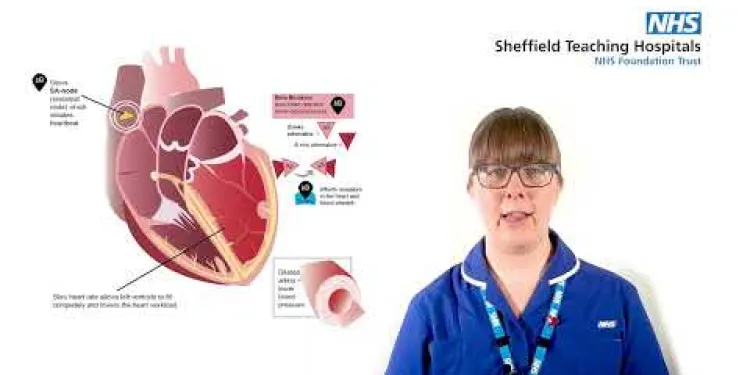
Medicines of the heart
Relevance: 34%
-

Is my abnormal heart rhythm dangerous?
Relevance: 33%
-

How do beta-blockers contribute to heart attack prevention?
Relevance: 32%
-

What are the long-term effects of a heart attack?
Relevance: 31%
-

Is my abnormal heart rhythm dangerous?
Relevance: 31%
-

Does coffee consumption have any long-term heart health effects?
Relevance: 30%
-

Heart stents
Relevance: 30%
-

What are the risk factors for a heart attack?
Relevance: 28%
-

Is it possible to prevent a heart attack?
Relevance: 27%
-
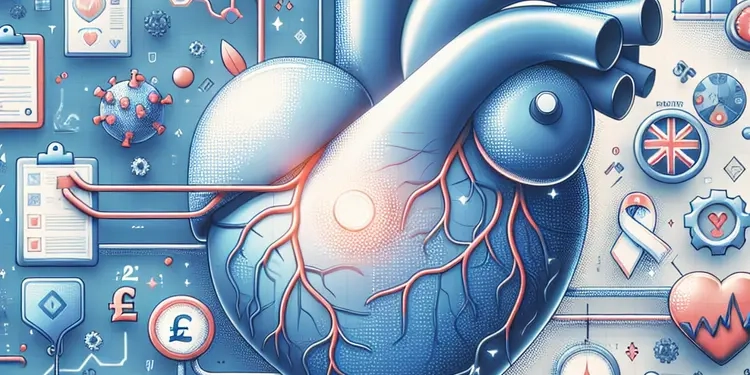
What is heart valve disease?
Relevance: 27%
-

Heart Attack Stories | NHS
Relevance: 27%
-
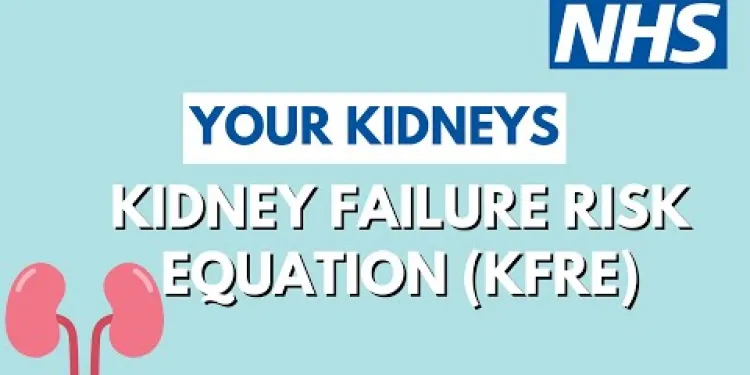
What is my risk of kidney failure with CKD (chronic kidney disease) | UHL NHS Trust
Relevance: 27%
-

Heart Attack Stories | NHS
Relevance: 27%
-

Is it possible to have a heart attack without chest pain?
Relevance: 26%
-

Are there specific fats that support heart health?
Relevance: 26%
Understanding Heart Failure
Heart failure is a chronic condition where the heart is unable to pump blood efficiently, which can lead to a range of health complications. In the UK, it affects thousands of people and can significantly impact the quality of life. Understanding the prognosis for someone with heart failure involves considering various factors that influence outcomes, including the severity of the condition, the individual's overall health, and the treatment options available.
Factors Influencing Prognosis
The prognosis for heart failure can vary widely from person to person. Some of the key factors influencing the prognosis include the stage of the heart failure, the patient's age, the presence of other medical conditions, and how well the patient responds to treatment. Early-stage heart failure, where symptoms are mild and manageable, typically has a better prognosis compared to more advanced stages, where symptoms are severe and more difficult to control. Additionally, younger patients generally fare better than older individuals, and those with fewer comorbid conditions tend to have improved outcomes.
Treatment and Management
Effective management of heart failure is crucial in improving prognosis. Standard treatments in the UK may include lifestyle changes, medications, and sometimes surgical interventions. Medications such as ACE inhibitors, beta-blockers, and diuretics can help manage symptoms and improve heart function. Lifestyle changes like adopting a healthy diet, engaging in regular physical activity, and avoiding smoking and excessive alcohol consumption are also recommended. In some cases, devices such as pacemakers or implantable cardioverter-defibrillators (ICDs) may be used to help regulate heart rhythms.
Regular Monitoring and Support
Regular monitoring by healthcare professionals is important in managing heart failure effectively. Regular check-ups can help in adjusting treatment plans as necessary and in identifying any changes in the patient's condition early. Support from healthcare teams, including general practitioners, cardiologists, and heart failure nurses, plays a critical role in improving outcomes. Additionally, psychological support and counselling can be beneficial in helping patients cope with the emotional aspects of living with heart failure.
Living with Heart Failure
While heart failure is a serious and potentially life-threatening condition, many patients can still lead fulfilling lives with appropriate management and care. Patients are encouraged to engage actively in their treatment plans, adhere to medication regimens, and maintain open communication with their healthcare providers. Self-management education can empower patients to recognize and respond to symptoms early, potentially reducing hospitalizations and improving overall quality of life.
The Importance of Advancements in Care
Ongoing advancements in medical research and treatment options hold promise for improving the prognosis of heart failure in the UK. New therapies and technologies are continually being developed, offering hope for better management strategies and improved long-term outcomes. As these advancements progress, they are likely to contribute significantly to enhancing the lives of those living with heart failure.
Understanding Heart Failure
Heart failure is when the heart doesn't work as it should. It can make people sick. In the UK, many people have heart failure. It can make life harder. To understand heart failure, we look at how bad it is, the person's health, and what treatments they can try.
Factors Influencing Prognosis
Heart failure affects everyone differently. What can change a person's health with heart failure? Some things are: how bad their heart failure is, how old they are, if they have other health problems, and how they react to treatment. If the heart failure isn't too bad and is easy to manage, people usually have better health. Younger people or those without other sicknesses also do better.
Treatment and Management
Looking after heart failure is key to feeling better. Treatments in the UK can include changes in how you live, medicines, and sometimes surgery. Medicines like ACE inhibitors, beta-blockers, and diuretics help the heart. It is also good to eat well, exercise, and stay away from smoking and too much alcohol. Sometimes, doctors use pacemakers or ICDs to help the heart.
Regular Monitoring and Support
Seeing doctors regularly helps manage heart failure. Doctors can change treatments if needed and catch any new problems early. A team of doctors and nurses helps a lot. It's also good to have support to deal with feelings about heart failure.
Living with Heart Failure
Even though heart failure is serious, people can still have good lives. Patients should follow their treatment, take medicines, and talk to their doctors. Learning how to look after themselves helps catch problems early and can make life better.
The Importance of Advancements in Care
New research and treatments are being developed all the time. These advancements help better the lives of people with heart failure. As more options become available, they bring hope to those living with heart issues.
Frequently Asked Questions
What is the prognosis for someone with heart failure?
The prognosis for someone with heart failure varies depending on several factors such as the severity of the condition, underlying causes, response to treatment, and lifestyle changes. With proper management, individuals can lead a relatively normal life.
Can people with heart failure live long lives?
Yes, with advances in treatment and lifestyle modifications, many people with heart failure can live long and fulfilling lives.
What factors impact the prognosis of heart failure?
Factors such as age, overall health, stage of heart failure, comorbid conditions, and adherence to treatment all influence the prognosis.
How does the stage of heart failure affect prognosis?
Generally, earlier stages of heart failure have a better prognosis compared to advanced stages. Early intervention can slow progression and improve outcomes.
Can lifestyle changes improve the prognosis for heart failure?
Yes, lifestyle changes such as maintaining a healthy diet, regular exercise, reducing salt intake, and quitting smoking can greatly improve prognosis.
Does medication play a role in the prognosis of heart failure?
Yes, medications are crucial in managing heart failure. They can improve symptoms, prevent complications, and, in some cases, improve survival rates.
Is it possible for heart failure to get better over time?
While heart failure is usually a chronic condition, its progression can be slowed, and in some cases, symptoms can significantly improve with treatment and lifestyle adjustments.
How do comorbid conditions affect the prognosis of heart failure?
The presence of other conditions such as diabetes, kidney disease, or lung disease can complicate the management of heart failure and generally worsen the prognosis.
What is the average survival rate for someone with heart failure?
Survival rates vary, but on average, about 50% of heart failure patients live beyond five years after diagnosis. Ongoing advancements in treatment continue to improve these statistics.
Can heart failure be reversed?
Heart failure is typically a chronic condition, but in certain cases, if it is caught early and the underlying cause is treated effectively, significant improvement or reversal of symptoms can occur.
What is the impact of ejection fraction on heart failure prognosis?
Ejection fraction, which measures how well the heart pumps blood, significantly affects prognosis. Patients with reduced ejection fraction may have a more cautious prognosis.
Are there surgical options that can improve the prognosis of heart failure?
Yes, surgical interventions like coronary artery bypass grafting, valve repair/replacement, or heart transplantation can improve symptoms and survival in selected patients.
How often should someone with heart failure see their healthcare provider?
Patients with heart failure should have regular check-ups with their healthcare provider, typically every three to six months, or more frequently if symptoms change.
Does the type of heart failure affect the prognosis?
Yes, the type (left-sided vs. right-sided, systolic vs. diastolic dysfunction) can affect treatment strategies and outcomes.
How does heart failure impact quality of life?
Heart failure can impact quality of life through symptoms like fatigue, breathlessness, and fluid retention, but treatment and lifestyle changes can help manage these effects.
Is age a significant factor in the prognosis of heart failure?
Age can influence prognosis, as older patients may have more comorbidities and a reduced capacity for the heart to recover, but treatment is still beneficial at any age.
Can heart failure cause sudden death?
Yes, heart failure can lead to life-threatening arrhythmias which can cause sudden cardiac death, but proper management and medications can reduce this risk.
Is there a cure for heart failure?
There is currently no cure for heart failure, but treatment can manage symptoms and significantly improve quality of life and survival.
What role does patient education play in the prognosis of heart failure?
Patient education is crucial as understanding the condition, recognizing symptoms, and adherence to lifestyle and medication regimens can greatly impact outcomes.
How does emotional health impact the prognosis of heart failure?
Emotional health can significantly influence the prognosis, as depression and anxiety are common in heart failure patients, potentially affecting treatment adherence and quality of life.
What happens to someone with heart failure?
Heart failure means the heart is not working as well as it should.
Here is what might happen:
- Doctors will give medicine to help the heart.
- It is important to eat healthy food.
- Exercise can make the heart stronger.
- Seeing the doctor often is important to stay healthy.
Support tools and tips:
- Use pictures to help understand the words.
- Ask a friend or family member to explain things.
- Keep a diary to track how you feel.
How well someone does with heart failure can be different for each person. It depends on things like how bad the heart problem is, what caused it, how well treatments work, and if the person makes healthy changes. With the right care, people can often live mostly normal lives.
Can people with heart problems live a long time?
Yes, people with heart problems can live a long time.
To stay healthy, they should:
- Visit the doctor often.
- Take their medicine every day.
- Eat healthy food and exercise if the doctor says it is okay.
- Rest when they are tired.
Families can help by:
- Going to doctor visits together.
- Helping with healthy meals.
- Talking and spending time together.
There are tools like:
- Reminders on phones to remember medicine.
- Exercise videos for gentle movement.
Yes, with better treatments and lifestyle changes, many people with heart problems can live a long and happy life.
What things can affect the outlook for heart problems?
There are different things that can change what might happen with heart problems:
- How old you are.
- How healthy you are in general.
- How serious the heart problem is.
- If you have other health problems too.
- If you follow the doctor's advice and take your medicine.
Using pictures or charts can help understand this better. Getting help from someone can also make it easier to know what to do next.
How does the stage of heart failure affect what will happen next?
Heart problems can get worse over time. When caught early, it is easier to manage. This means people can feel better and stay healthier for longer.
Can changing how you live help with heart failure?
Heart failure is when your heart doesn't work as well as it should.
Making changes in your life can help you feel better.
This means eating healthy food, moving your body, and stopping smoking.
Talk to a doctor for more advice. Friends and family can help too.
Yes, changing how you live can help you feel better. Try to eat healthy food, exercise often, eat less salt, and stop smoking. These things can really help you.
Can medicine help people with heart problems get better?
Yes, medicine is very important for helping people with heart problems. It can make you feel better, stop bad things from happening, and sometimes help you live longer.
Can heart failure improve over time?
Heart failure is when the heart doesn't work very well. It usually gets worse over time. But, we can help it slow down. Sometimes, with the right treatment and changes in how we live, people can feel much better.
Here are some things that might help:
- Take your medicine as the doctor says.
- Eat healthy foods.
- Exercise a little every day.
- Quit smoking and drinking alcohol.
- Visit your doctor regularly.
These tips can help people with heart failure feel better and stay healthy longer.
How do other health problems change what happens when you have heart failure?
Having other health problems like diabetes, kidney issues, or lung problems can make heart failure harder to treat. These conditions can also make heart failure worse.
You can use pictures or diagrams to help understand how these health problems affect heart failure. Listening to audio versions of this information might also be useful.
How long do people usually live with heart failure?
If you have heart failure, it means your heart is not working well. It is important to see a doctor and take medicine. People with heart failure can still live for many years, but it is different for everyone.
Here are some tips to help:
- Visit your doctor regularly.
- Take your medicine as your doctor tells you.
- Eat healthy foods and exercise if you can.
- Ask family or friends to help you when you need it.
When people have heart failure, about half of them live more than five years after they find out. Doctors and scientists are working on better ways to help people live longer.
Can heart failure get better?
Heart failure means the heart is weak and not working well. Some things can help the heart get stronger:
- Take medicines that the doctor gives you.
- Eat healthy food like fruits and vegetables.
- Exercise a little bit each day. Ask your doctor what is safe.
- Visit your doctor regularly for check-ups.
- Don't smoke or drink too much alcohol.
Sometimes, doing these things can help the heart. It might get a bit better, but it’s important to remember that heart failure is a serious condition. It needs help and care all the time.
Tools that can help:
- Use a pill organizer to remember your medicine.
- Write down what you eat to track healthy eating.
- Use a calendar for doctor visits to remember appointments.
Heart failure is when the heart doesn't work as well as it should. It usually lasts a long time. But sometimes, if doctors find it early and treat what is causing it, people can feel much better.
How does ejection fraction affect heart health?
Ejection fraction tells us how well the heart pumps blood. It is like a score for your heart's strength.
If the ejection fraction is low, it means the heart is not working well. This can lead to heart problems.
Doctors use this score to understand how serious heart problems are. It helps them decide the best treatment.
Supporting tools like pictures, videos, or talking to a nurse can help you understand more about ejection fraction and heart health.
The ejection fraction shows how strong the heart is at pumping blood. It helps doctors know how a patient might do in the future. If someone has a low ejection fraction, they might need more care and attention.
Using short sentences and clear words makes this easier to understand. Picture diagrams or talking to a doctor can also help.
Can surgery help people with heart failure get better?
Yes, heart surgery can help some people get better and live longer. Some types of heart surgery are:
- Bypass surgery: This helps blood flow around blocked parts of the heart.
- Valve repair or replacement: This fixes or changes parts of the heart that control blood flow.
- Heart transplant: This gives a person a new heart from another person.
These surgeries can help if a doctor says they are the right choice for that person.
To understand better, you can:
- Ask a doctor to explain using simple words.
- Use pictures or videos that show how the heart works.
- Talk to someone who has had heart surgery before.
How often should a person with a weak heart see their doctor?
If your heart is not strong, see your doctor a lot. This helps you stay healthy.
Here are some tips:
- Visit your doctor to check your heart.
- Follow the doctor’s advice.
- Use a calendar to remember visits.
Tools to help:
- Ask someone to remind you.
- Use a phone to set alarms.
People with heart problems should see their doctor often. Usually, they should go every 3 to 6 months. If their symptoms change, they might need to go more often.
Does the type of heart failure affect what happens next?
The kind of heart failure someone has can change what might happen. It is important to know what type it is so doctors can help better.
Tools that can help:
- Talk to a friendly doctor who can explain things.
- Use pictures and simple charts to understand more.
Yes, the kind of heart problem (left or right side, and how the heart moves when it beats) can change how doctors treat it and what happens afterwards.
How does heart failure affect your life?
Heart failure is when your heart does not work as well as it should. This can make you feel tired and weak.
When you have heart failure, you might not be able to do things you enjoy, like playing or walking.
It can also make you feel sad or worried sometimes.
To help, you can use tools like pictures or talk to someone who knows about heart failure.
Try to rest when you need to, and ask for help if you find things hard to do.
Heart problems can make life harder. You might feel really tired, find it hard to breathe, or have swelling because your body holds onto water. But there are things you can do to feel better. Medicine and changing the way you live can help a lot.
Does age matter if someone has heart problems?
Age can affect how you get better. Older people might have other health problems and their hearts might not heal as easily. But, getting treatment helps everyone, no matter how old they are.
Can heart failure cause sudden death?
Yes, heart failure can cause death quickly in some cases.
- The heart might stop working suddenly.
- It's important to talk to a doctor if you have heart problems.
Tools to help:
- Talk: Speak with a doctor about your heart health.
- Support: Ask a family member or friend to go with you to appointments.
- Keep notes: Write down questions for the doctor.
Yes, heart problems can make the heart beat in a dangerous way. This can be very serious and even cause sudden death. But, with the right care and medicine, we can help stop this from happening.
Can we fix heart failure?
There is no cure for heart failure, but doctors can help with the symptoms. This means people can feel better and live a longer and happier life.
How does teaching patients help with heart failure?
It is very important for patients to learn about their health. Knowing what their illness is, what signs to look for, and following the doctor's advice can make them feel better.
How does feeling happy or sad affect heart problems getting better?
How you feel inside your heart and mind can change how well you get better from heart problems.
It is important to feel good and have people who support you. This can help your heart problems improve.
Here are some things that might help you feel better:
- Talk to someone you trust about your feelings.
- Do fun activities that make you happy.
- Practice deep breathing to relax.
- Use apps that help you feel calmer or meditate.
If you feel very sad or worried, tell a doctor or a trusted adult so they can help you.
How we feel is very important. When people have heart problems, they might also feel sad or worried. This can make it harder for them to follow their treatment plan and enjoy life.
Useful Links
This website offers general information and is not a substitute for professional advice.
Always seek guidance from qualified professionals.
If you have any medical concerns or need urgent help, contact a healthcare professional or emergency services immediately.
Some of this content was generated with AI assistance. We’ve done our best to keep it accurate, helpful, and human-friendly.
- Ergsy carfully checks the information in the videos we provide here.
- Videos shown by Youtube after a video has completed, have NOT been reviewed by ERGSY.
- To view, click the arrow in centre of video.
- Most of the videos you find here will have subtitles and/or closed captions available.
- You may need to turn these on, and choose your preferred language.
- Go to the video you'd like to watch.
- If closed captions (CC) are available, settings will be visible on the bottom right of the video player.
- To turn on Captions, click settings .
- To turn off Captions, click settings again.
More Items From Ergsy search
-

What is the prognosis for someone with heart failure?
Relevance: 100%
-

Heart Failure : Symptoms of heart failure
Relevance: 75%
-

Heart failure introduction
Relevance: 70%
-

Heart Failure : What is heart failure?
Relevance: 70%
-

Heart Failure : Heart failure that cannot pump
Relevance: 68%
-

Are there different types of heart failure?
Relevance: 67%
-

Heart Failure : The normal heart
Relevance: 66%
-

Heart Failure : When the heart becomes stiff?
Relevance: 64%
-

What causes heart failure?
Relevance: 62%
-

How is heart failure diagnosed?
Relevance: 62%
-

Can heart failure be cured?
Relevance: 62%
-

Can heart failure be prevented?
Relevance: 62%
-

Is Baxdrostat used in treating heart failure?
Relevance: 59%
-

Can heart failure affect other organs?
Relevance: 57%
-

What is the role of diet in managing heart failure?
Relevance: 57%
-

How does exercise impact heart failure?
Relevance: 57%
-

Heart Failure : Treatment and monitoring of fluid retention
Relevance: 56%
-

What should I do if I experience symptoms of heart failure?
Relevance: 56%
-

What medications are commonly prescribed for heart failure?
Relevance: 56%
-

What is heart failure?
Relevance: 49%
-

What are the common symptoms of heart failure?
Relevance: 43%
-

What is the prognosis for someone with CFS?
Relevance: 43%
-

What is the prognosis for viral meningitis?
Relevance: 38%
-

What lifestyle changes can help manage heart failure?
Relevance: 38%
-

How often should someone with heart failure see their doctor?
Relevance: 37%
-

Medicines of the heart
Relevance: 34%
-

Is my abnormal heart rhythm dangerous?
Relevance: 33%
-

How do beta-blockers contribute to heart attack prevention?
Relevance: 32%
-

What are the long-term effects of a heart attack?
Relevance: 31%
-

Is my abnormal heart rhythm dangerous?
Relevance: 31%
-

Does coffee consumption have any long-term heart health effects?
Relevance: 30%
-

Heart stents
Relevance: 30%
-

What are the risk factors for a heart attack?
Relevance: 28%
-

Is it possible to prevent a heart attack?
Relevance: 27%
-

What is heart valve disease?
Relevance: 27%
-

Heart Attack Stories | NHS
Relevance: 27%
-

What is my risk of kidney failure with CKD (chronic kidney disease) | UHL NHS Trust
Relevance: 27%
-

Heart Attack Stories | NHS
Relevance: 27%
-

Is it possible to have a heart attack without chest pain?
Relevance: 26%
-

Are there specific fats that support heart health?
Relevance: 26%


